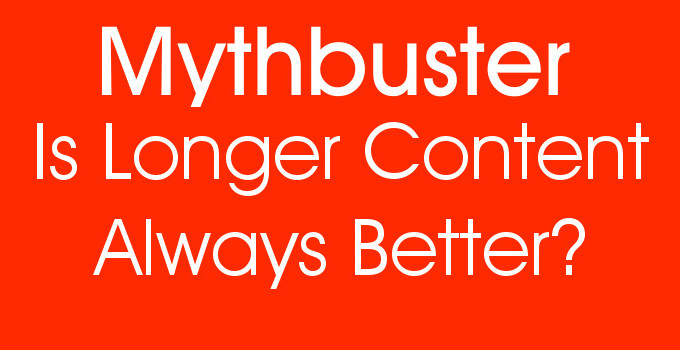
One of the pieces of advice that you’ve probably seen a lot is that more content = better. It was a topic debated in a recent #SEMrushchat that I enjoyed participating in. Here’s a breakdown of the general consensus of the long content vs. short content debate.

Recently, one of the main arguments has been that Google prefers longer blog posts and pages with higher word counts. The fear of having your site “devalued” by Google due to “thin content” drove waves of content creators to start pushing out articles with minimum word counts, generally well over 1,000 words. But is it really necessary to beef up your articles to the max? Will your site’s SEO suffer if you have a bunch of 500 word articles on it?
The Problem With The Long Approach
The main issue that comes along with the movement towards making all blog posts as long as possible is that it starts to open the doors for fluffy content. Fluffy content is just what it sounds like, articles that contain a bunch of fluff or filler content, with very little meat and substance. They’re the ones that you read and think to yourself “would you just get to the point already?”
When you start imposing minimum word counts on yourself, or worse, giving underpaid freelance writers minimum word counts, then the content starts to be forced. Instead of having ideas flow naturally, you start reaching for anything to meet your minimum word count, regardless of whether or not it adds any value.
One of the main issues I’ve come across a lot is seeing people trying to lengthen their articles by repeating the same points over and over again, just worded differently. Once you’ve made a point/statement, you can expound on it, but don’t keep repeating yourself. No need to beat a dead horse. It makes for boring content.
You should never force extra words into your content to meet a minimum word count.
How To Keep It Short And Sweet
Here’s my approach to creating content. If you can offer the same amount of value in 500 words as you can in 1,000, why not do it?
It may sound crazy, but the reality is that writing a shorter, concise piece of content is a challenge for most people, myself included at times. But here’s a strategy that can help you cut out some of the fluff and filler in your content.
Start by writing freely. Write as much as you want or are able to about your topic without worrying about maximum or minimum word counts. Once you’re done, go through and re-read your content. But read it from the perspective of someone that only has about 3-5 minutes to read your article. Pinpoint what is absolutely necessary for them to take from your article, and cut out everything else. I guarantee that you’ll shorten the length of your content CONSIDERABLY with this approach.
Here’s why this method works. Most people reading your article won’t have the time to sit down and read your 2,000+ word monster post. I mean come on, 55% of your visitors are on your entire site for less than 15 seconds. So by making the assumption that a visitor will only have 3-5 minutes to read your article, you’ll be able to better prioritize what’s really important, and what’s not.
So How Long Should Your Content Be?
The short answer is “it depends”. But the key takeaway from this Mythbusters is to focus on providing value. Make your content as valuable as possible. If that means writing a 4,000 word ultimate guide post, that’s fine. I personally enjoy a lot of longer “evergreen” content. As long as everything you’re writing is adding to the conversation and not just background noise. But if you sat down, wrote an article on a topic, then looked down at the word count in WordPress and saw 499 words written, don’t start freaking out! That’s perfectly fine too.
I like this graphic from Search Engine Land that goes over some examples of when you might use longer or shorter articles.

As long as the content is great, and you’ve made your point, that’s all that matters. Don’t become a slave to word counts, and force yourself to create longer posts because some “expert” said to, or to satisfy Google. The truth is simply that there is no “best” content length. And if you’ve become so reliant and focused on SEO that you feel obligated to make every piece of content on your site as long as possible, you need to rethink your strategy my friend.
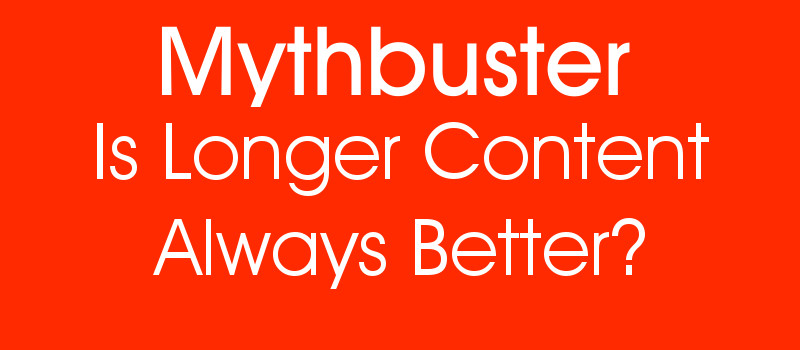
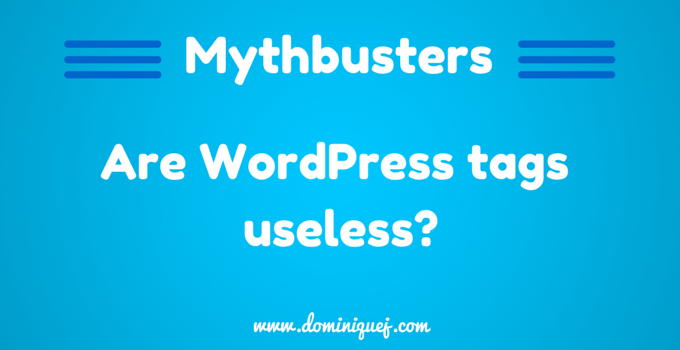
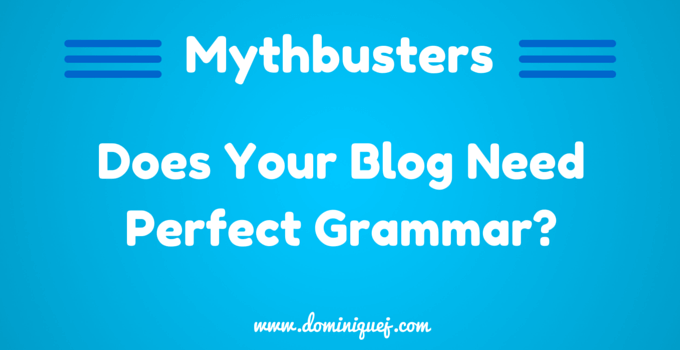
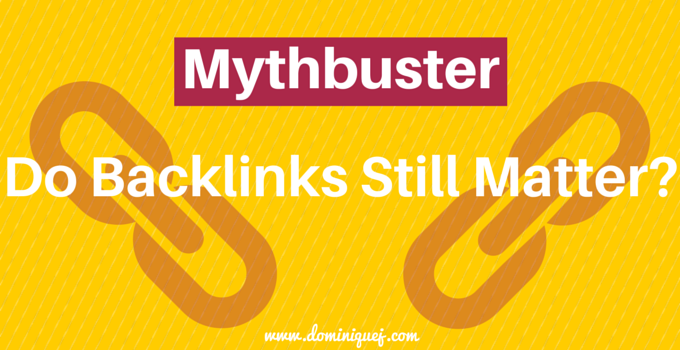
Articles or posts that are super long seem to always have that “fluffy content” you mentioned. An example is a recent post written by Ryan Biddulph that is 7,000 words long. It has A LOT of fluff with a little substance sprinkled in. It’s that fluff content that makes me NOT continue reading a post. Shorter posts that get straight to the point are the posts I will read all the way through to the end. I get bored easy like a lot of other readers out there.
Agreed Megan! There are a lot of great posts that are on the longer end, but at the same time, there are plenty with fluff. The goal should always be to provide the highest quality content. I think as content creators, we need to focus more on quality and less on meeting word count minimums to satisfy search engines.